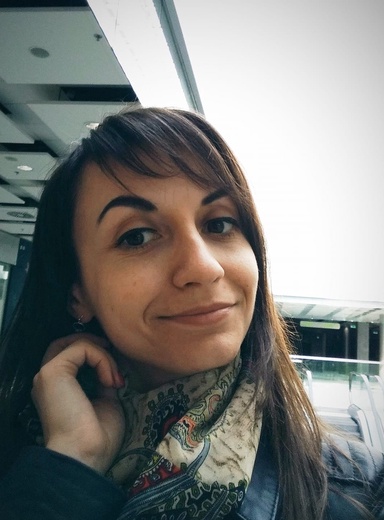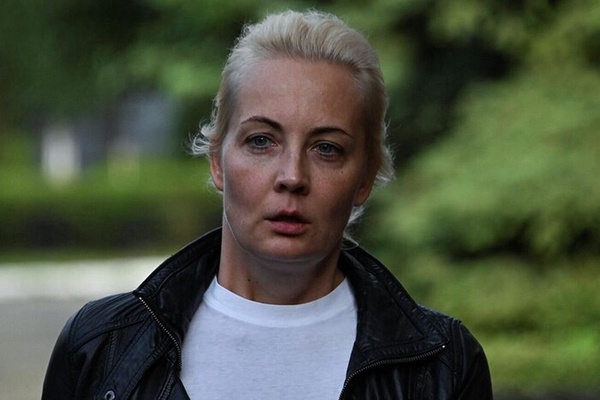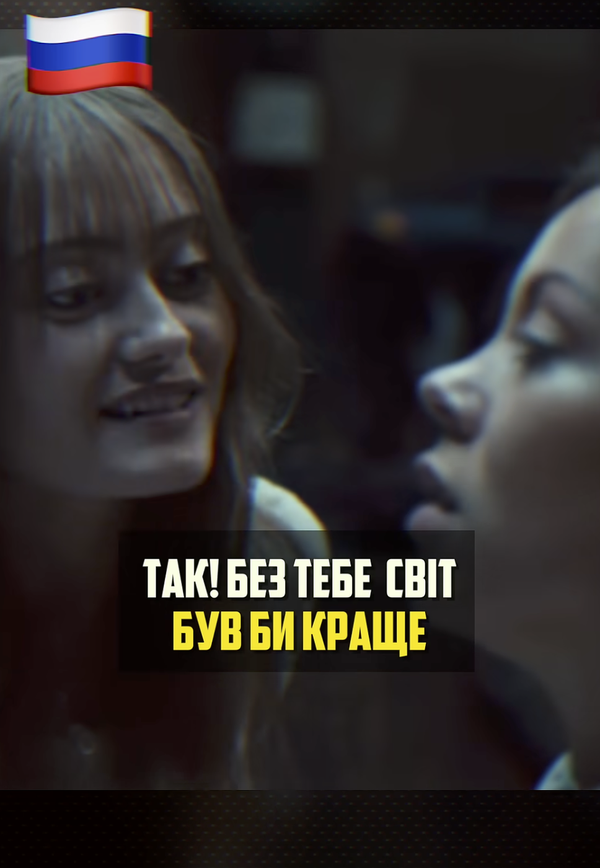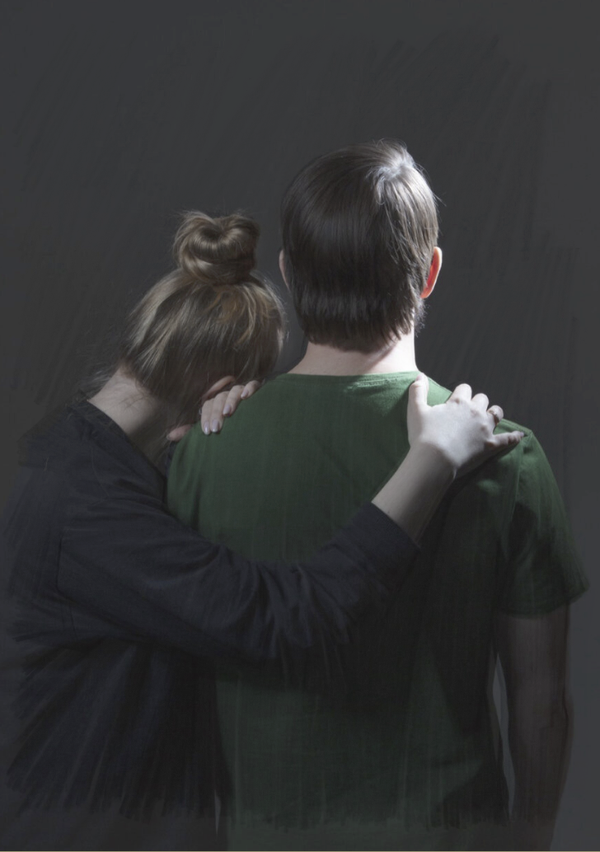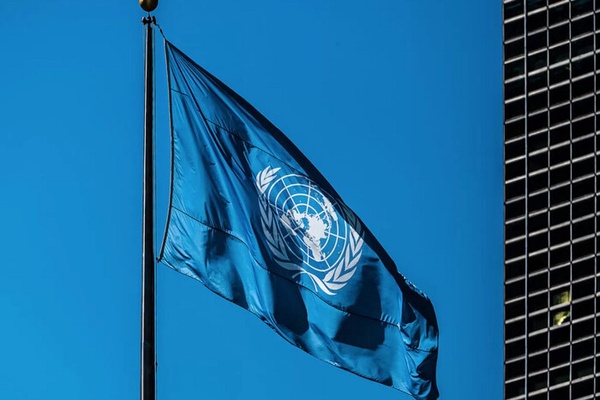Russian neutrality and the BBC
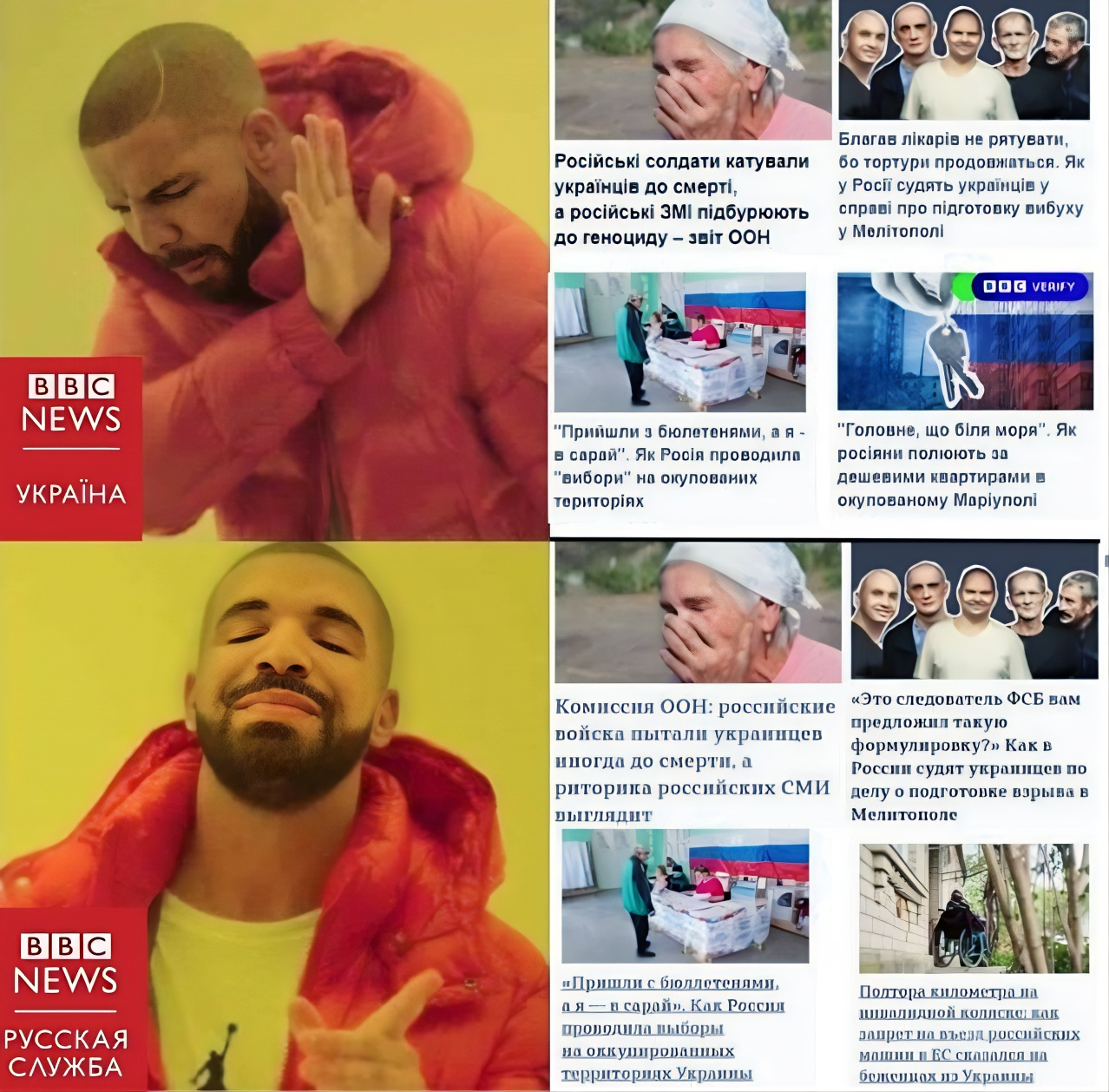
We’ve invested considerable time and effort in this analysis. We would be grateful if you could share this material . It’s a long read, so brew some tea and read the text to the end, as we will explain why it’s important.
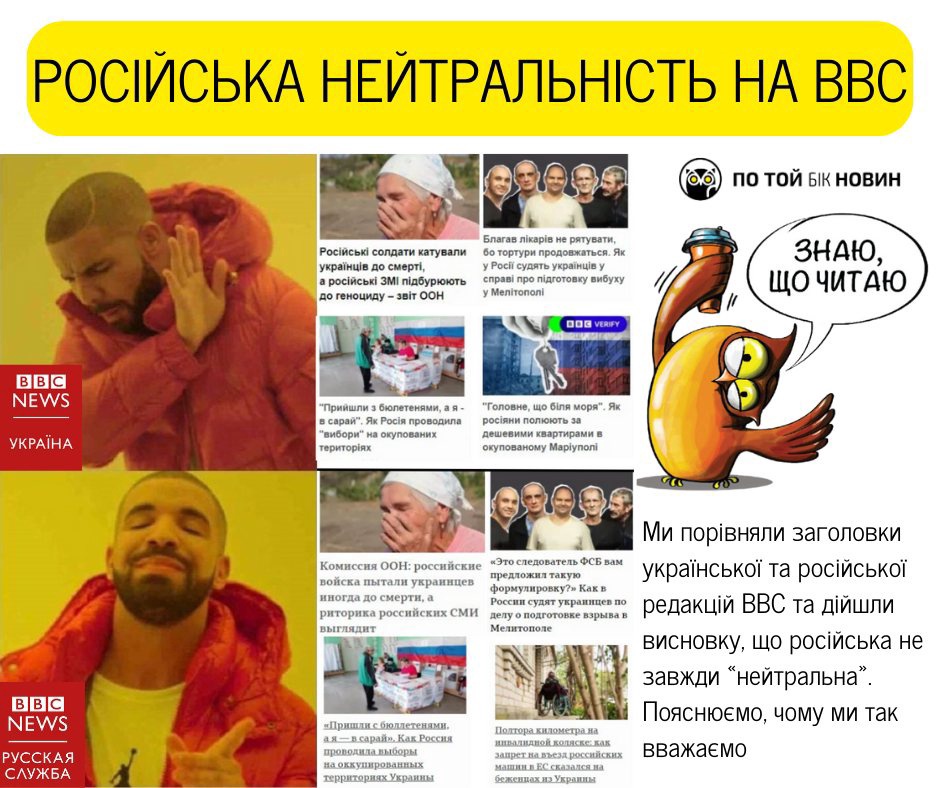
We scrutinized the headlines of articles published by the Ukrainian and Russian BBC newsrooms. We reached the conclusion that the BBC’s Russian edition is not always “neutral”. We clarify why it’s important
Russian “neutrality”
Recently, the British public broadcaster BBC faced a wave of criticism for its reluctance to label Hamas as “terrorists.” While British politicians mainly voiced this criticism, ordinary readers on social media also expressed discontent.
The BBC defends its position by citing the long-standing editorial principle of neutrality. According to this principle, labeling someone a “terrorist” would imply taking sides in the conflict. In particular, John Simpson, the editor of the BBC’s international service, clarified that “the BBC’s role is not to tell people who to support and who to condemn, who are the good guys and who are the bad guys... Our job is to present the facts and let the audience make up their own minds.”
Apart from the main British service, there are other BBC language services. Against the backdrop of the aforementioned story, we decided to examine how the Russian newsroom adheres to the proclaimed principle of neutrality. To accomplish this, we scrutinized the headlines of articles related to the war published in Ukrainian and Russian over the past few months.
Both websites have a dedicated section for this purpose, named “War in Ukraine” in the Russian version and “War with Russia” in the Ukrainian version. In addition, it’s not uncommon for the BBC to have a single publication in different languages (adapted or simply translated) or for journalists from various editorial offices to cover the same topic on the same day.
We focused on the headlines for two reasons. According to various studies, many people read only headlines. In addition, there was a recent incident when the BBC published different headlines to a story about the Commander-in-Chief of the Armed Forces of Ukraine, Valeriy Zaluzhnyi, depending on the location of the newsrooms. At that time, the Russian service titled the article “General Voldemort. How Valeriy Zaluzhnyi became the most popular commander of the Ukrainian army,” comparing the commander-in-chief of the Armed Forces of Ukraine to the main villain of the Harry Potter series. The Ukrainian edition chose a different headline: “First after God, in a good way. How General Zaluzhnyi became who he is.” At the time, neither the editors nor the journalists explained why the headlines were different.
After comparing the headlines, we came to the conclusion that the Russian editorial board is not always “neutral.” Below we explain why we think so:
1) For example, when it comes to Russian missile attacks, the Ukrainian edition of the BBC chooses more emotional headlines, while the Russian edition mostly presents statistics and tries not to mention who exactly is shelling Ukrainian cities and whose missiles are killing Ukrainians:
“Only a lady’s handbag remains - that’s all.” The story of Lviv residents who managed to escape from Russian missiles / Missile strike on Lviv. Consequences. Video.
“A boy wrapped in a blanket, sleeping”: a strike on Kharkiv kills a grandmother and grandson, many wounded / Rocket attack on Kharkiv. Photos.
Russia strikes a cafe in the village of Hroza near Kupiansk: fifty dead at the wake / Missile strike on a shop and cafe in Kharkiv Region: more than 50 dead.
Kyiv, Cherkasy, Rivne, Drohobych, and Kharkiv. What are the consequences of Russia’s missile strike / 43 missiles in one night: how Ukraine survived the massive shelling.
Russia’s attack on Lviv. One man dead and lots of destruction, the Shaheds flew right over Rynok Square / Massive attack on Lviv. The Shaheds flew over the very centre of the city.
Russia strikes a police station in Kryvyi Rih: one dead, more than fifty wounded / A missile strikes a police building in Kryvyi Rih. Police officers were rescued from under the rubble - photos.
Russians shell the centre of Chernihiv. There are dead and wounded / Russian troops shell Chernihiv. 7 people killed.
2) In other headlines in the Russian version, readers are led to believe that “not everything is so clear” and that there are other, alternative versions alongside the main one:
Russians strike a crowded market in Konstantinovka: 16 killed, dozens wounded / Ukrainian authorities accuse Russia of shelling Konstantinovka. 16 people killed.
Russian soldiers tortured Ukrainians to death, and Russian media incite to genocide - UN report / UN Commission: Russian troops sometimes torture Ukrainians to death, while Russian rhetoric appears like incitement to genocide.
Kakhovka hydroelectric power plant explosion: who benefits from it and will it stop the offensive of the Ukrainian army / Did it collapse by itself or was it deliberately destroyed? What happened to the Kakhovka dam?
The last example clearly demonstrates a different approach to covering the same topic. Both journalists consider different versions of what could have happened. But the Ukrainian journalist uses a military officer who specializes in explosives as an expert and explains that the dam was probably blown up from the inside, while the Russian journalist relies on an expert who explains how dams collapse due to overflow or damage. He also suggests that although the dam had been in the hands of the Russian military for more than a year, it wasn’t at all profitable for them to blow it up from the point of view of “military logic.”
3) When it comes to Russian war crimes, the Ukrainian edition of the BBC focuses on this topic in its headlines, while the Russian edition looks for something else to focus on:
He begged the doctors to let him die, because they would continue torturing him. How Ukrainians are being tried in Russia as illustrated by the Melitopol bombing case / “Was it the FSB investigator who told you what to say?” How Ukrainians are being tried in Russia as illustrated by the Melitopol bombing case.
“This is death, guys. Glory to Ukraine”. How the “Berdiansk partisans” died / The case of the “Berdiansk partisans.” The death of two teenagers accused of sabotage against Russia.
Torture, hunger, and humiliation. Liberated Ukrainians talk about Russian captivity / “They beat you for anything and everything.” Ukrainian prisoners of war describe how they were tortured in a Russian prison.
4) The topic of Mariupol is also covered in different ways. For instance, the Ukrainian edition published articles about Azovstal prisoners, such as “Mum, talk to me.” How a daughter waited for almost a year for a prisoner from Azov,” “I was told that my son was dead. And then he called.” “The trial of the Azov soldiers has begun in Russia.” Additionally, they covered daily life in a city destroyed by Russians, such as “I gave birth under fire in Mariupol and was forced to make out a Russian certificate for my child.” Lastly, there are articles on how Russians buy real estate in the city, like “The main thing is that it’s near the sea.” How Russians hunt for cheap apartments in occupied Mariupol.”
The latter article, by the way, was written by British journalists, but the Russian service, for some reason, decided not to translate it...
Instead, the latest article from the Russian editorial office about the life of Mariupol residents carries the following headline:
“One and a half kilometres in a wheelchair: how EU sanctions against Russia have affected refugees with limited mobility from the occupied regions of Ukraine.”
This article is manipulative, as journalists use sick and disabled Ukrainians from the occupied territories as an example of the damage caused by sanctions. In reality, they use them to solve their own problems. In September 2023, the EU banned Russians from importing cars, smartphones, jewelry, and laptops (150 items in total). Russians, especially the “good” ones who are sitting out the war in other countries, talk about the discriminatory nature of such sanctions and once again portray themselves as victims.
At the beginning of the article, it’s mentioned that the heroine refused to leave Mariupol after the full-scale invasion, but there’s no context - what happened to the city that a resident cannot simply go to the hospital, but has to be taken out by volunteers? Similarly, the BBC journalists avoid mentioning that the sanctions were not imposed out of the blue but in response to Russia’s armed aggression against Ukraine, that Russians are terrorizing the civilian population in the occupied territories, that access to medical services in the occupation is almost impossible without a Russian passport, that Russian missiles are destroying civilian sites, including hospitals. Instead, the entire narrative of the article underlines that sanctions are harming ordinary people.
5) In other headlines, the Russian editorial board legitimizes the actions of the Russian authorities. For example, on September 11, 2023, Ukrainian BBC journalists released a report on the pseudo-elections in the occupied territories. The material was titled “They came with ballots, and I headed for the barn”. How Russia held “elections” in the occupied territories. This article was also translated by the Russian service of the BBC. But, during the translation, the quotation marks disappeared from the title.
Coincidentally, on the same day, the Russian BBC also published a story titled “Regional elections in Russia. Incumbent governors win every seat.” Among other things, it talks about the occupied territories. And although it’s noted that neither Ukraine nor the international community recognizes the results of the voting, the elections are mentioned several times and again without quotation marks. In addition, the story about the occupied territories is illustrated with a photo from the state-run TASS news agency, which is fully controlled by the Kremlin. The caption to the photo reads: “counting ballots at a polling station in Donetsk.”
In this way, journalists are actually helping to legitimize the pseudo-elections that the occupiers are holding in order to justify the seizure of Ukrainian territories.
A similar situation occurred on the eve of the full-scale invasion when Putin recognized the independence of self-proclaimed separatist groups in Donetsk and Luhansk Regions. The headlines on the Russian and Ukrainian news outlets were again differentiated by quotation marks: “Putin: Russia recognized the “DPR” and “LPR” within the borders of their entire regions” / “Putin: Russia recognized the DPR and LPR within the borders of their entire regions.”
Although the article itself contains a disclaimer that the “republics” are self-proclaimed and unrecognized, the editorial board decided to leave out this information in the headline, and it’s the headline that is mostly viewed by readers.
6) There’s another category of materials, and, accordingly, headlines, which, for obvious reasons, can only be found on the Russian portal. They can be combined into the conditional category of “our poor boys”. This narrative has been constantly present in the Russian media since the beginning of the full-scale invasion. At first, “their boys” thought they were going somewhere “for training”; next, they didn’t actually kill and torture civilians but “followed orders”; they didn’t launch missiles at residential buildings but acted “according to coordinates.” In fact, such narratives blur responsibility for war crimes. It turns out that Putin is guilty of all the crimes, while the Russian military and civilians who support the war aren’t guilty of anything because they’re just “little people” who are unable to undertake any actions:
“We’ve given up now.” How do families with disabled children experience the mobilization of their parents?
“Citizens are like serfs.” A Russian court has ruled that military enlistment offices can call up armour-equipped employees.
“It’s akin to sacrilege, an affront to all of us.” How murderers are pardoned after participating in the war, and how the mothers of the victims try to fight it.
“Like slaves, to the slaughter.” Why migrants from Central Asia end up near Bakhmut.
Another category of headlines that you won’t find in the Ukrainian service of the BBC are stories about “good Russians” who dissociate themselves from the war and therefore, they believe that they don’t bear any responsibility for war crimes, for missile attacks on infrastructure, and the deaths of Ukrainians. Instead, they claim that they’re victims:
“The Iron Curtain. How the war against Ukraine destroys the theatre in Russia.”
“I’m for peace.” Tennis players from Russia and Belarus to play at Wimbledon.
The new Russian emigrants. Who are they? How many are there? Where have they gone?
Masha Gessen’s resignation: What are the consequences of the PEN America scandal regarding the invitation issued to expatriate Russian writers?
The Russian anti-war activist was not allowed to enter Serbia, where he’d been living with his children for seven years.
Conclusion
Our analysis doesn’t claim to be an in-depth study, but even a cursory review and comparison of the headlines shows that despite the declared “BBC standards,” the Russian media remain primarily Russian. That’s why they often spread distorted narratives. Readers who consume news in Russian and read Russian media for whatever reason should keep this in mind.
Developed specially for Behind the News by @Alyona Malichenko
As ever, we express our gratitude for your trust and for sharing this article. Your support enables us to disseminate the truth to a wider audience
Sincerely yours,
Owl ![]()

